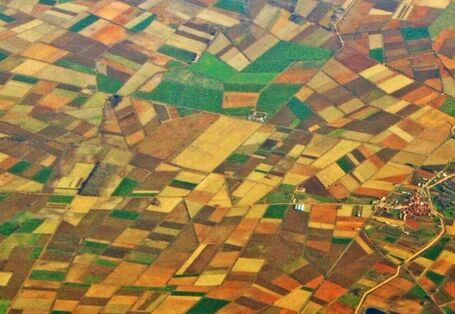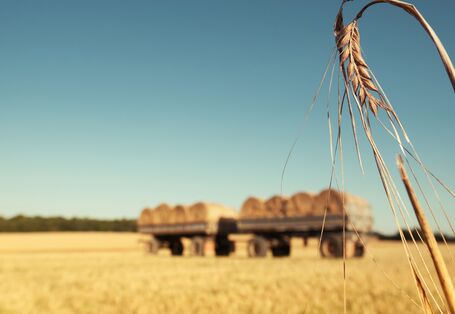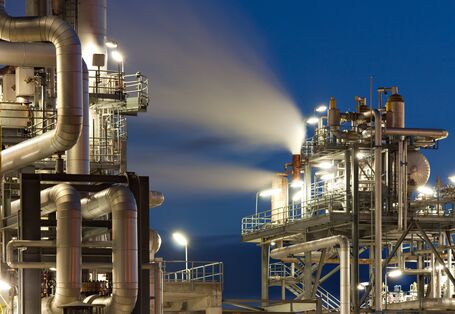Climate Impacts Germany
Also Germany is affected by climate change. Nearly all areas of society are concerned by the consequences. However, these have very different effects in the various regions and sectors. You can access further information on the climate impacts in the individual sectors or regions of Germany using the search function below. After selecting a sector OR a federal state, you will be shown detailed information on this.
Climate Impacts
1 - 12 of 15
Climate Impacts: Field of Action Spatial, Regional and Urban Development Planning

Climate change has a decisive influence on the use to which spaces will be put in the future. It can influence the use of space directly, as in the case of a floodplain, or indirectly, as through changes in water availability. Climate change also brings with it additional demands on space and land use.
Climate Impacts: Field of Action Biological Diversity

Climate change and thus changes in temperature and precipitation patterns as well as the frequency of extreme events influence the seasonal development, behaviour, reproduction, competitiveness and food relationships of species in the long term. Biodiversity is also threatened by climate change.
Climate Impacts: Field of Action Tourism

As an economic sector and growth industry, tourism is dependent on the weather on both the supply and demand side, as a large number of tourism activities take place outdoors. Accordingly, tourism is also influenced by climatic changes. These affect tourism offers and regions in very different ways.
Climate Impacts: Field of Action Fishery

In general, climate change is expected to have significant negative impacts for all types of fisheries. For marine fisheries, increasing warming and acidification of the oceans are particularly relevant. For inland water fisheries and fish farming in aquacultures, higher water temperatures and increasing drought are relevant.
Climate Impacts: Field of Action Agriculture

Increased temperatures, heat waves, late frosts, drought, heavy rain, hail and storms have a direct impact on agricultural production. Due to this high dependence on weather and climate, it is particularly important for agriculture as well as fruit cultivation, viticulture and horticulture to be aware of the impacts of climate change and to prepare for them in time.
Climate Impacts: Field of Action Forestry

Climate change poses major challenges for forests: Extreme events such as heat and drought periods and storms are severely affecting the forest. Pest infestations and forest fires can cause damage over large areas. In many places, the natural adaptive capacity of forests has already been exceeded and is increasingly endangering the climate and forestry yields.
Climate Impacts: Field of Action Soils

Soils fulfil a variety of functions. They are the basis for the production of healthy food, provide settlement and living space for humans and animals, and are crucial for the water balance and protection of groundwater. Soils are the world's largest terrestrial store of organic carbon and thus also of central importance for climate protection.
Climate Impacts: Field of Action Human Health

Humans react sensitively to extreme weather events. Heat is a direct burden on human health and can lead to severe diseases of the cardiovascular system and, in extreme cases, to death. In addition, climate change favours allergies and pathogens or their vectors. Sunny years increase the risk of UV-related health damage.
Climate Impacts: Field of Action Water Resources, Water Management, Coastal and Marine Protection

The water balance and water management are affected by climate change in many ways. Rising temperatures, changing precipitation and increasing weather extremes influence the quantity and quality of the available water. In coastal regions, effects such as rising sea levels and the consequences of storm surges are added to this, which can affect the water balance and cause major damage.
Climate Impacts: Field of Action Transport

Heavy rain, flooding, storms, heat and drought affect the navigability of inland waterways and can cause damage to roads, railways, traffic control systems, overhead lines and power poles. Traffic is affected as a result, which can lead to accidents and economic losses.
Climate impacts: Field of action industry and commerce

The impacts of climate change pose new challenges for companies. Risks arise in that, for example, the supply of raw materials and intermediate products as well as the transport of goods can be impaired. Sales markets may change or shift. Opportunities can also arise through the development of innovative environmental technologies.
Climate impacts: Field of action finance and insurance sector

Financial and insurance service providers are confronted in various ways with the risks and consequences of climate change. The increase in climate-related damage cases is increasing the demands on risk analysis and risk management. The danger of "stranded assets" is also increasing, i.e. a loss of value of investments due to climate risks.